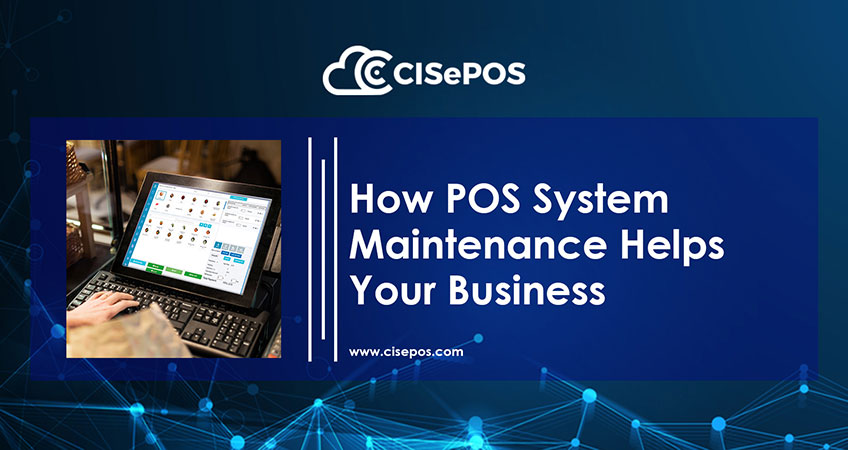
From retail stores to restaurants, the point-of-sale system is a critical tool for your business’s daily operations. It handles everything from customer transactions to inventory management.
However, like any other technology, a POS system requires a maintenance plan to keep it in good shape. Without proper care, it can cause inventory problems and leave customers frustrated. Such problems can lead to a bad reputation for your business and hinder your workflow, ultimately affecting the performance.
In this article, we’ll explore why regular POS system maintenance is essential to ensure operations, secure transactions, and happy customers.
What is a POS System?
Before discussing the important details of maintaining it, let’s first understand what a POS system is and how it functions.
Many businesses use POS systems to manage transactions. When a customer makes payments and a receipt is generated at the sales terminal that records the transaction, it is all done through this system. All transaction details are recorded, from initiation to completion. However, this is not all; it also tracks inventory, offers discounts, and helps develop customer relationships beyond sales.
Why Regular POS Care Helps Your Business
Now that we have established what it does, let’s understand why POS system maintenance matters to businesses. Regular maintenance helps your business run smoothly without unexpected delays. It keeps transactions fast and accurate, helping you avoid slowdown. This means reduced errors and increased focus on building customer relationships rather than spending time on point-of-sale repair.
A well-maintained system can help manage real-time sales data and inventory levels. This saves time, reduces stress, and helps run the operations as planned.
Why POS Maintenance Matters
Maintaining your system is not all about avoiding the problems associated with an outdated system, but it is also about what benefits it brings to your business. This is why the seamless running of this setup is important.
Here are some key advantages of regular POS system maintenance:
- Fewer breakdowns: Regular maintenance helps you identify and fix small errors before they escalate into bigger problems in the future. Such errors can result in crashes, leading to frustration in customers. So, working out those problems at an earlier stage will help you avoid downtime and effectively run your operations.
- Faster transactions: If maintained properly, it can process transactions quickly. This also correlates to happy customers, which is a good place to be for any business.
- Accurate sales and inventory data: A well-functioning system indicates real-time data availability of inventory levels. This helps businesses to reorder items to avoid shortages.
- Better security: Data leaks or fraudulent activities are common nowadays. If updated regularly, it can monitor and detect these security breaches on time. This will help the business to address them by taking the necessary actions to prevent such issues in the future.
- Longer life: If it is maintained regularly, it can avoid frequent repair costs while extending its life. Sometimes, when you don’t maintain the system properly, issues start to build up. This is when it might become non-responsive and needs a replacement. Addressing such issues earlier in its life can help you maximize its life.
What Can Go Wrong Without Maintenance
Now that we have addressed the advantages, if you’re still unsure about regular updates, think again. The one thing you shouldn’t do is neglect POS system maintenance. It can land your business in bigger problems, and that’s just the tip of the iceberg. Let’s get into a bit of detail on what could go wrong without it.
Let’s mention a few drawbacks of not maintaining it:
- Crashes during busy times: If the POS doesn’t support your business activities in peak hours, it can result in loss of customers, and your reputation can also take a hit.
- Incompatibility with new payment options: If you don’t update the setup regularly, your business might lose some customers who prefer newer payment methods like contactless cards. This ultimately means that you might lose your share of the pie in terms of customers.
- Increased risk of security breaches: Online hackers try to exploit systems with low firewalls. This only happens if they are not being regularly maintained and can result in compromised data of your customers. This can cause legal issues for the business and lead to damage to its reputation.
- Lower staff morale and productivity: Increased downtime due to frequent crashes can create stress for your employees. This results in a loss of efficiency and a lower level of motivation.
Simple Tips to Keep Your POS System in Good Shape
Now let’s shed light on some of the best practices your business can adopt to keep the system in optimal condition.
- Schedule regular check-ups with a point-of-sale technician to catch and fix issues early.
- Keep your POS software updated to ensure the latest features and security checks are in place.
- Back up your sales and inventory data regularly to prevent loss during unexpected problems.
- Clean hardware components like screens and cash drawers to avoid wear and tear.
- Train your staff to use the system efficiently to reduce errors from your end.
- Monitor system performance daily to spot any unusual slowdowns or glitches quickly.
- Use strong passwords and secure networks to protect your POS from cyber threats.
Conclusion
In conclusion, the key to running smooth operations in your business is POS system maintenance. You should develop a framework that covers software updates, data backups, hardware cleaning, staff training, and performance monitoring to keep everything working efficiently.
Start putting a plan in place today to avoid future disruptions and keep your business running without setbacks.


